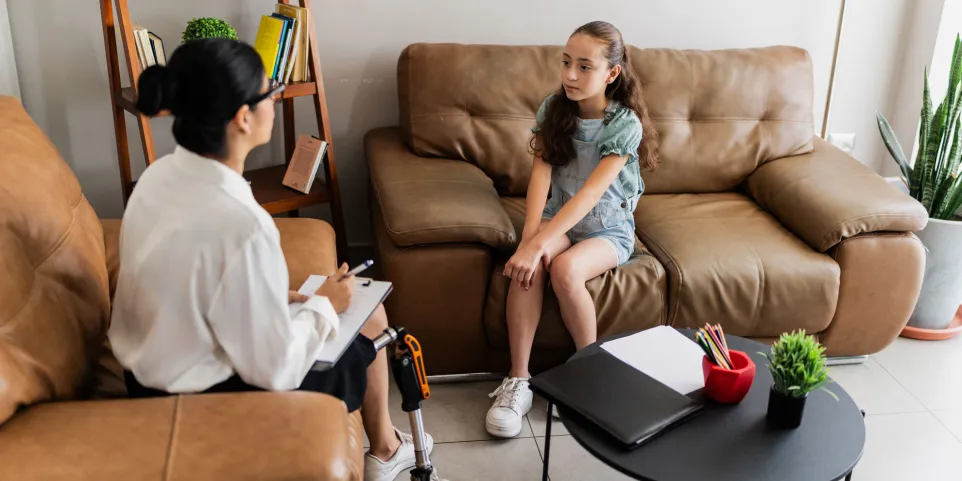Finding Mental Health Support for Your Child


Topics
Texas Children’s Hospital has seen first-hand the rising numbers of children and teenagers with serious mental health concerns. If you have a concern about your child’s mental health, you’re not alone.
“Before the pandemic we usually saw about 40 to 60 kids a month coming in specifically for mental health across our emergency rooms. Now we see 400 to 500 per month, and it doesn’t seem to be going away,” said Karin Price, PhD, chief of Psychology at Texas Children’s.
With more and more families voicing concerns about mental health, clinics and communities are adjusting to keep children safe.
When you have a concern about your child’s mental health, you can start with your pediatrician. Most general pediatricians don’t have time for a full mental health evaluation, which can take 60–90 minutes, but they can take your child’s story seriously and make suggestions about treatment.
“Every kid over age 12 needs to be screened for depression and suicidal thoughts when they come to their well-child visits, so that we are identifying serious symptoms early,” said Dr. Price.
To support families, Texas Children’s Pediatrics has started incorporating mental health professionals into their clinics, so that when a child shows signs of depression or anxiety, specialized help is right down the hall.
“By inviting those professionals in the primary care environment, we’re catching problems early. We’re decreasing stigma because it’s happening right there in the pediatrician office, and we’re also increasing the likelihood that the families will come back because they’re in a place where they’re comfortable,” said Dr. Price.
If mental health services aren’t available in your pediatrician’s office, or more intensive care is needed, your doctor might make a referral. Understanding the different specialties is an important step in advocating for your child and finding the help they need.
If your child’s mental health condition is influencing school performance or social behaviors, it can be helpful to integrate spiritual leaders, coaches, teachers or administrators into your doctor’s treatment plan. Schools often have systems in place to support children and teens so they can do well both academically and socially.
“We're doing a better job of teaching our educators and our school administrators and bringing mental health care out into the community in order to engage those supportive adults,” said Dr. Price.
Parents, extended family and caregivers play a vitally important role in supporting a child’s mental health. While your child’s mental health seems beyond your control, you can provide a lot of essential, healing support.
“The best crisis prevention that we have is engaging with your kids on a regular basis, whether that's talking at the dinner table or when they’re in the car with you. While you drive to school or home from practice, talk to them. Just open those lines of communication so that when they are struggling, they know that they can come to you,” said Dr. Price.
Make an appointment with Child Psychology at Texas Children’s by calling 832-822-1900.